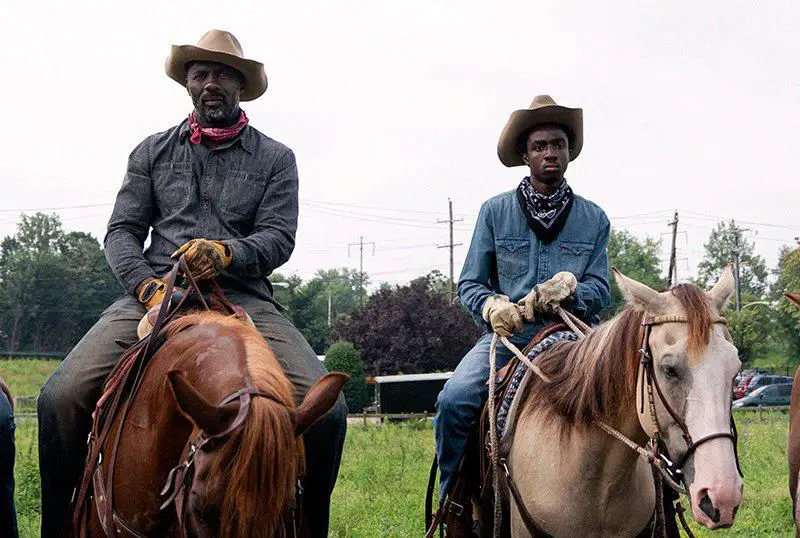"Concrete Cowboy" Tells the Untold Story of Black Urban Cowboys
In a refreshing coming-of-age story, the unacknowledged Black cowboy subculture finds recognition
You can tell how Concrete Cowboy is going to end within 15 minutes of watching the film. In it, a troubled Black teenager, played by Caleb McLaughlin of Stranger Things, is sent to live with his estranged father for the summer.
What follows is what you'd expect: angst, anger, and ultimately reconciliation. But between all the expected fights and forgiveness, something unique is at the center: horses.
Netflix's Concrete Cowboy has gone through many iterations, from a novel Ghetto Cowboy by Greg Neri to a screenplay by Staub and Dan Walser. Concrete Cowboy tells the story of the Fletcher Street Urban Riding Club, a group of horse riders in North Philadelphia who have created a sense of community and homes at the stables.
McLaughlin's character, Cole, finds himself at the center of this community, needing guidance after almost being expelled from school and leaving his mother with no other option but to send him to his father. His father, played by Idris Elba, is an integral part of the riding community, giving him tough love in the form of stable cleaning and, eventually, horse riding.
McLaughlin's character finds himself trying to find his place, pulled between the cowboy community and an old friend, the only person who seems wholly on his side but spends his nights selling drugs.
But every trope gets subverted and every character is more complex than they seem. Caleb McLaughlin plays his starring role with dexterity and sensitivity, showing how wasted his talents are as the neurotic Black sidekick in Stranger Things. In Concrete Cowboy, he's dynamic – a trembling live wire of anger and vulnerability who knows when to pull back and knows when to explode.
Elba goes from compassionate to cold in seconds, diffusing the tensions in the horses with a calm hand and the tension in an argument with the sound of Coltrane on the record player. And the troubled, drug-dealing best friend, played by Jharrel Jerome of Moonlight and When They See Us, is more than just a reckless wannabe gangsta.
Jerome gives McLaughlin guidance and advice just as often as he takes him to parties and shoot-outs. "Home ain't a place, dummy. It's fam, you got fam here," he says — a sentiment later repeated by Elba when the stables are forced to close.
Beneath the personal relationships, the film tells the story of a community defined by displacement. The characters play out a recognizable reconciliation story, but it feels wholly new and wholly original in the context of the Fletcher Street Riding Club.
Like its troubled protagonists, the riding club has no permanent place and is struggling to find recognition in a world that feels hostile towards it. Over a campfire outside the stables, the community tells the stories of Black cowboys, how they came to be, and their struggle to stay afloat.
Hollywood has turned cowboys into white men propelled by manifest destiny, fighting against Native Americans for land which did not belong to them. Once the paradigm of masculinity, defined by John Wayne and whiteness, the idea of the cowboy exists in a very specific context in the American imagination.
Concrete Cowboy moves the idea of the cowboy out of western deserts and instead tells the story of Black, city riders. When McLaughlin asks how they got to Philadelphia, the community explains that when technology moved past using horses, the horses and the people who had taken care of them and learned to love them ended up displaced.
Members of the community may disagree with the best way to go forward — some abandoning the club to work at the races, some feeling hopeless in the face of gentrification, and Jerome even planning to one day buy his own ranch — but they all love the horses and the community they have built around them.
Moments like these are the heart of the film, where actual members of the real life Fletcher Street Urban Riding Club are cast to tell their stories and the untold history and marginalized present of the Black cowboy communities are given the recognition they deserve.
The film is an intimate picture of the Black cowboys as much as it is a portrait of a father and son dynamic. The release of the film has prompted many fundraising campaigns for the real life communities, giving visibility to the subculture whose story its telling.
